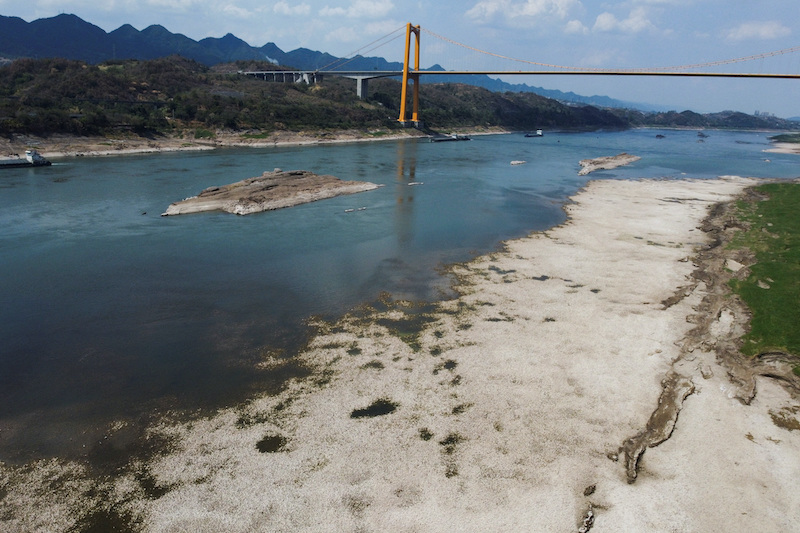Industrial firms in China’s Chongqing and Sichuan province have had little respite after nearly two weeks of power restrictions. Many are idle and simply waiting for the weather to cool down.
Thousands of companies, including some large global automakers, have endured the harsh impacts of an intense and prolonged heatwave, which has wreaked serious economic and environmental damage through the country’s southwest.
Industrial firms were originally ordered to restrict output from August 17 until August 24, but formal curbs were extended until today (August 25), according to a notice issued by the Chongqing authorities on Wednesday.
It said that power curbs would be gradually relaxed “in an orderly manner” – once weather conditions improve.
Pangang Group Vanadium & Titanium Resources told the stock exchange in a filing on Wednesday its Chongqing subsidiary had received the notice and would continue to suspend production.
“The specific recovery time will be subject to the notification of relevant departments in Chongqing,” it said.
Chongqing and Sichuan province, and large swathes of China, have been broiling under several days of 40 Celsius (104 Fahrenheit) heat – causing major crop damage in some areas and forest fires.
Power rationing in the region has shortened mall hours in Chongqing and impacted firms across sectors including battery makers and solar panel equipment manufacturers. Toyota Motor said it had used an in-house generator at its Sichuan plant to resume operations.
ALSO SEE: China Unemployment Payouts Hit a Record $5.2bn in June
Although national forecasters reduced their heat alert level from “red” to “orange” from Tuesday, temperatures are still expected to exceed 40C in some places in Chongqing, neighbouring Sichuan and other parts of the Yangtze delta until the weekend.
Sichuan depends on hydropower for around 80% of its electricity, and dwindling water levels have left its generators operating at much lower than their normal capacity.
Sichuan normally delivers large amounts of its surplus hydropower to other provinces, and coal-fired power plants in Anhui province and elsewhere have been under pressure to pick up the slack, according to state media.
“It’s unclear how long this power will continue to be exported ex-province, considering the severity of the local power shortage, but cross-province transmission is usually given highest priority in China’s power dispatch planning,” David Fishman, a power expert with the Lantau Group consultancy, said.
“If these exports are suspended, already-tight power supply in eastern China, which is enduring its own heatwave, will be further affected,” he said in a research note.
China’s State Grid Corporation is deploying tens of thousands of workers to help shore up electricity supplies to Sichuan, state broadcaster CCTV said on Wednesday, with 130 million kilowatt-hours now being delivered every day to the province through eight transmission lines.
Economists at ANZ said in a note on Tuesday it was unlikely China would see a repeat of last year’s nationwide energy shortages, which were caused by tight coal supplies, adding that the impact of the current power crunch on gross domestic product was “negligible” so far.
- Reuters with additional editing by Jim Pollard
ALSO SEE:
Huawei Warns of Long Global Recession, Targets ‘Survival’
China Warns Solar Panel Makers on Hoarding, Monopolies
India Eyes $3bn Armed Drones Deal With US to Monitor China
























